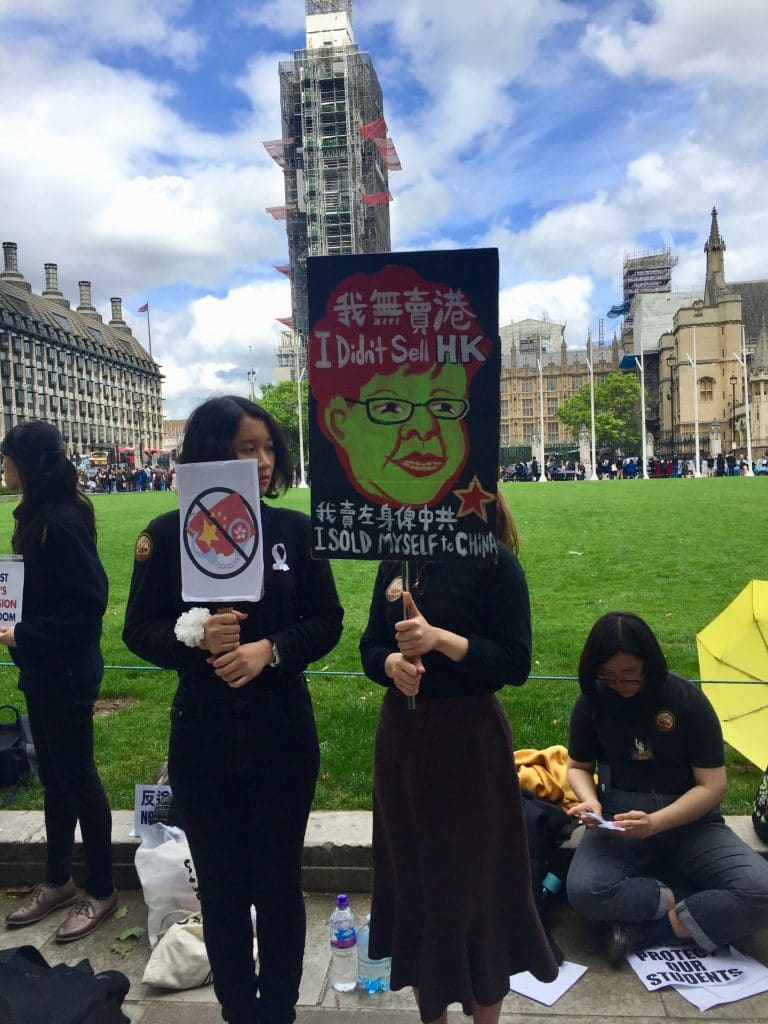The recent proposal for the Extradition Bill in Hong Kong has stirred mass anger, resulting in a series of vivid protests with a turnout of nearly two million on 16th June.
If passed the bill, introduced by Chief Executive, Carrie Lam, will allow the extradition of Hong Kong suspects to mainland China. Concerns have called into question the autonomy and judicial independence of the semi-autonomous territory as it highlights the extension of intervention by the Chinese government. Despite Lam’s apology and suspension of the bill in reaction to public outcry shortly after its proposal, a fresh wave of protests began this week ahead of the upcoming G20 summit in Japan. I spoke to a group of 10 Hong Kong college students and Dr. Stephan Ortmann of City University of Hong Kong to find out why this bill is so significant and what it represents.
Hong Kong is part of the ‘one country, two systems’ arrangement following the handover from the British government in 1997. The semi-autonomous territory has its own legal system, protection of free speech and other rights through its mini-constitution, The Basic Law, which has contributed to its development of an identity distinct from mainland China.
The extradition bill was prompted by the murder of Poon Hiu-wing who was killed on holiday in Taiwan by her boyfriend Chan Tong-Kai last year. The case exposed a legal loophole as Hong Kong currently lacks an extradition treaty. Whilst the bill aims to resolve this political barrier, fears of extradition to mainland China have been the driving force for protests.
When asked why the bill is so controversial, the students claimed that it violated the core values of their home: human rights, the rule of law, democracy and press freedom.
“We learn about these values as young children at school, it’s what makes us so proud to be Hong Kongers and so it is our responsibility to stand up and protect our home. We are lucky enough to be born in this generation, to see the transition from British colony to the ‘one country two system’, which for us is core to our identity”.
Ortmann reinstates that controversy over the bill derives from the deeper political implications it poses, as it represents “the growing and ongoing interventions by the Chinese government in Hong Kong”.
China’s legal system has faced continuous criticisms over its human rights record, unlawful detentions and arbitrary arrests, a system Ortmann labels “deeply problematic in comparison to Hong Kong’s rule of law.
This is evidenced by televised confessions, secret trials, lack of proper representation, and many other aspects. Hong Kongers are worried that this bill will legalise Chinese use of the law to prosecute activists, such as those who fled following the Tiananmen massacre in 1989”.
As fears of such instances have grown since the proposal of the bill, Ortmann argues that “it is clear that it’s possible to accuse anyone of any crime. This is a struggle for Hong Kong’s soul, it’s autonomy and independent legal system”.
Alongside facing China’s controversial criminal justice system, the group of Hong Kong students raised their particular concern of self-censorship.
“The bill will put those who are willing to stand up against Beijing at risk of being extradited to the mainland for unofficially political reasons. As a result, most people here will start self-censoring what they say and publish on the internet, as they are afraid of what it will lead to, hence the limitation of our freedom of speech as Hong Kongers”.
Despite being the largest protest recorded in Hong Kong history, the police claimed crowds of 338,000 people at most.
{loadmoduleid 280}
Media reactions and coverage in mainland China have also misconstrued the movement, as China Daily, one of the leading national newspapers, reported a petition bearing 800,000 signatures in support of the extradition bill, the Financial Times reports. This stands as a stark reminder of the government’s exertion of power to control public narrative through the media.
In response to the ongoing protests, Carrie Lam issued a formal apology and suspended the bill last week. However, many Hong Kongers have rejected her apology, including this group of students who felt that “her apology is nothing close to sincerity. All we’ve heard is that bill is suspended, there is no explanation why and she has not expressed that she will retract it altogether. She is refusing to cooperate with the people and this will only add to tensions and distrust between the general public and the government”.
Whilst unwavered protesters vow to continue their fight for Hong Kong, the group of students claimed that only a formal retreat of the bill will avoid jeopardising the territory’s autonomy.
“We were once proud of living in this city because of its well-maintained rule of law and human rights, but seeing my city being stripped away piece by piece has made me so angry, but also anxious about our future”.
With thanks to the 10 Hong Kong students who wish to remain anonymous and Dr. Stephan Ortmann an Assistant Professor, Department of Asian and International Studies, City University of Hong Kong.
Any views or opinions expressed in this article are those of the author and not necessarily The Speaker or its team members. Links are informational purposes and are not endorsements. The content of external sites is not the responsibility of The Speaker, in accordance with our Disclaimer and policies.




